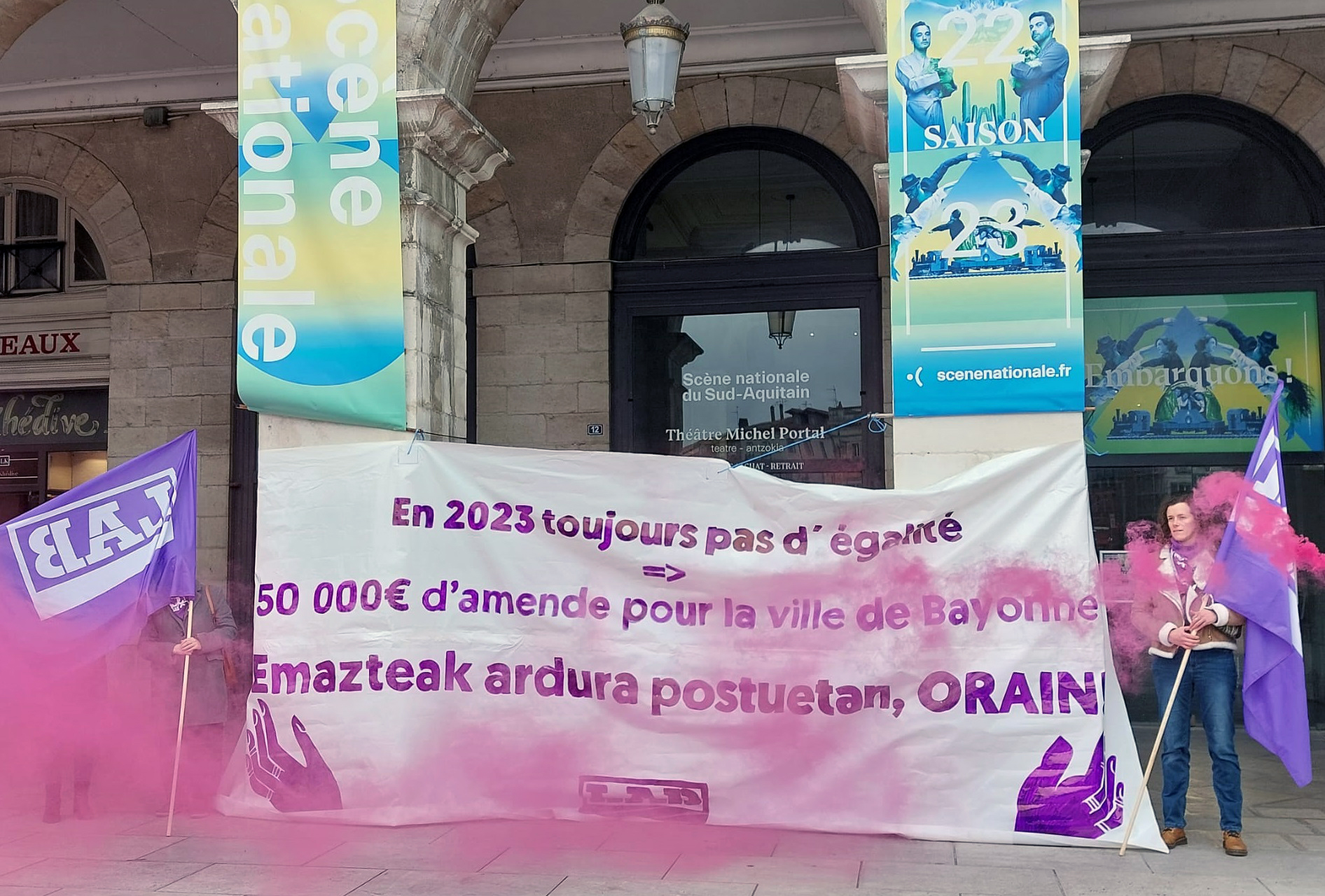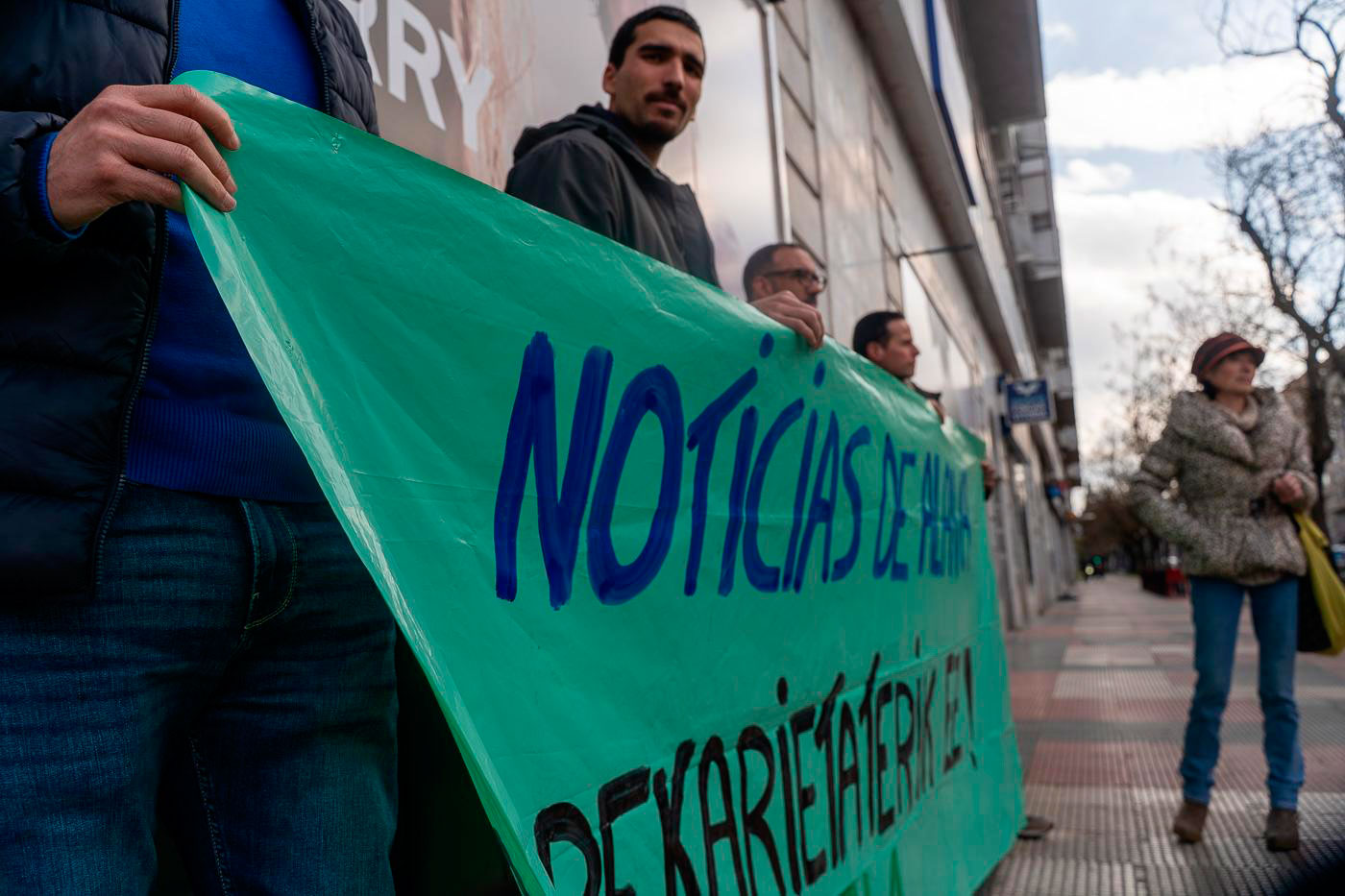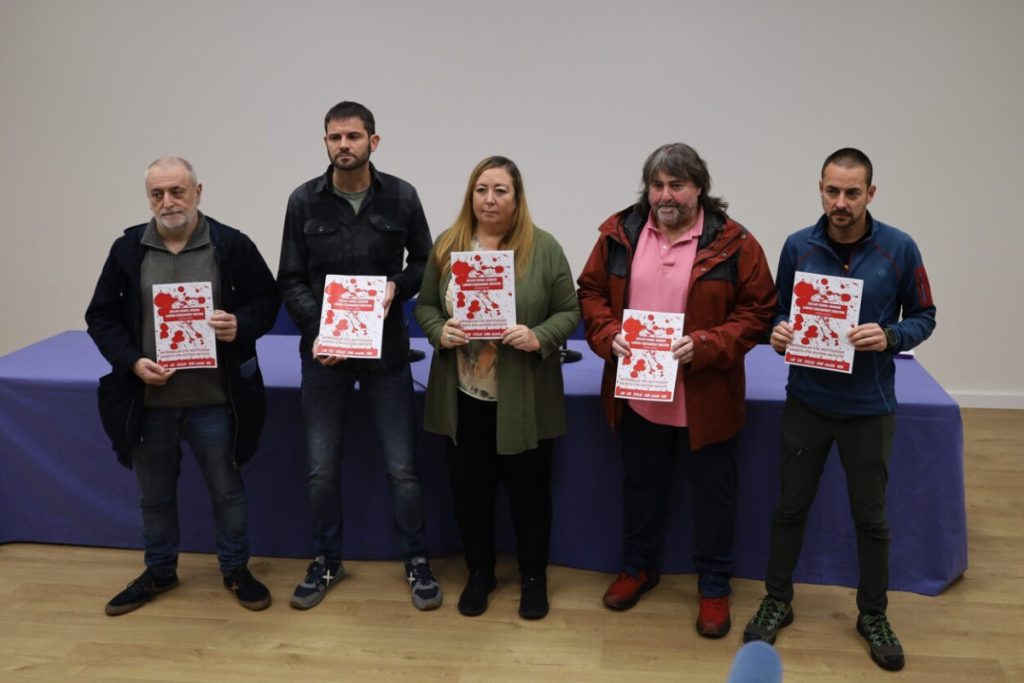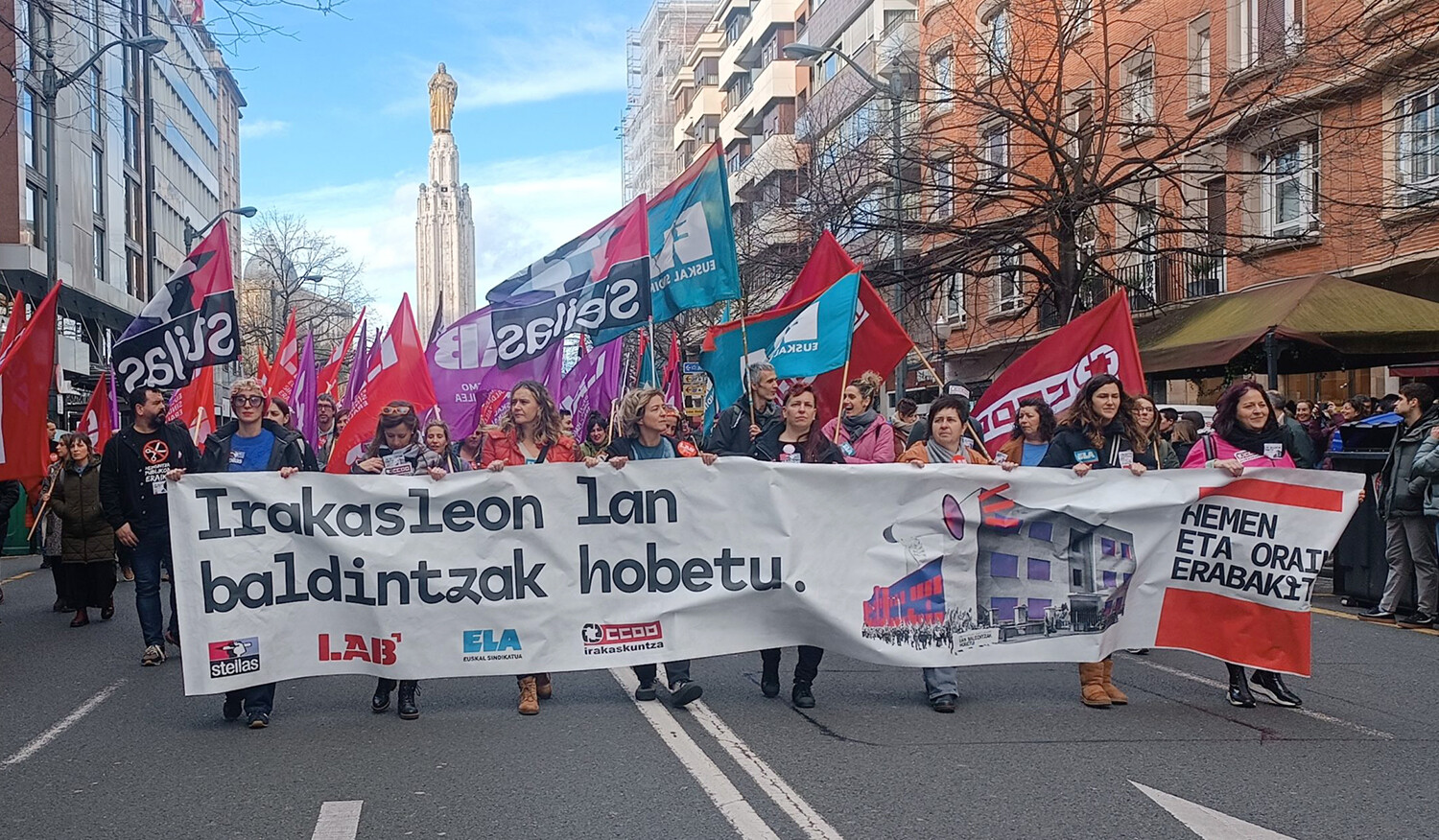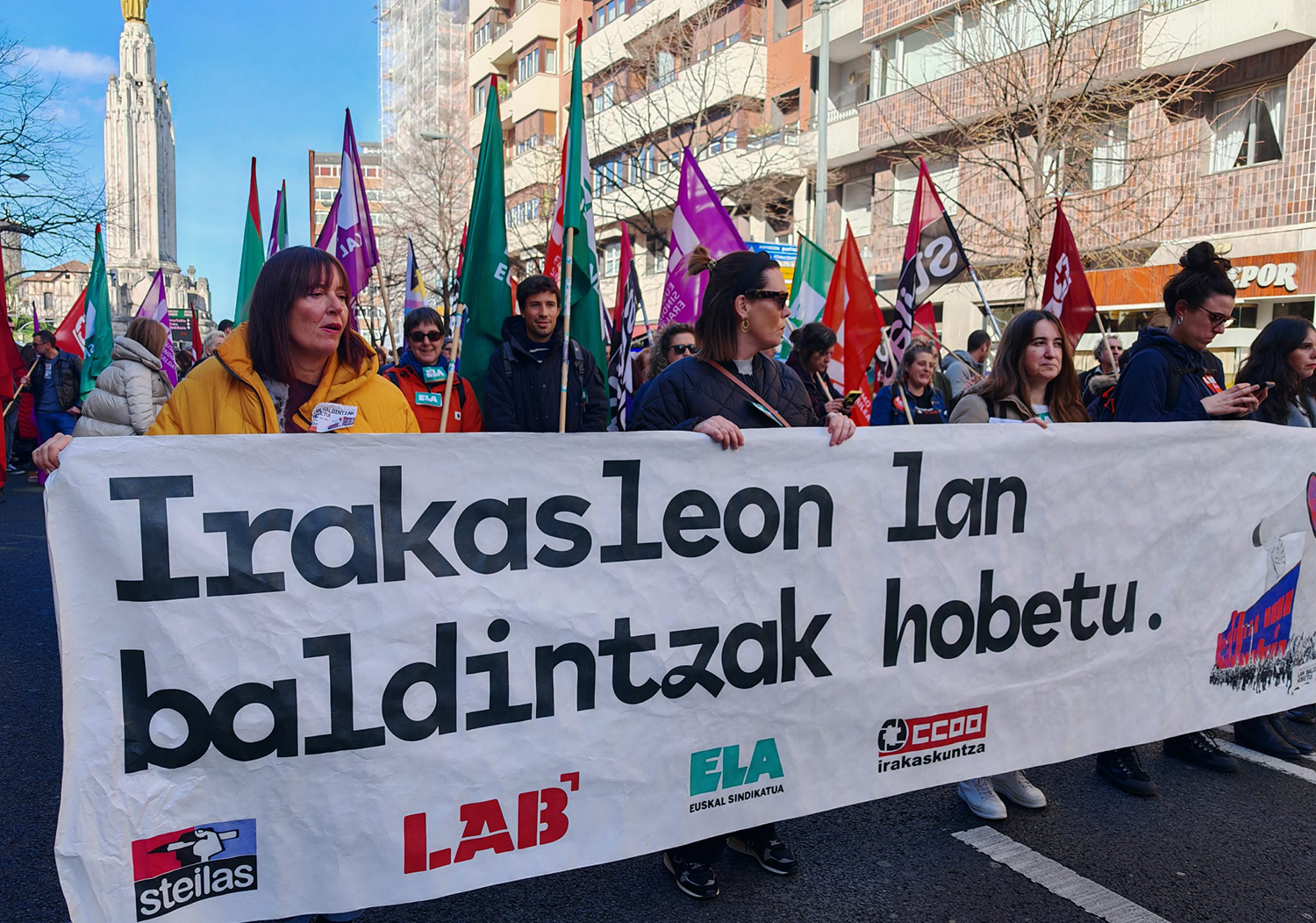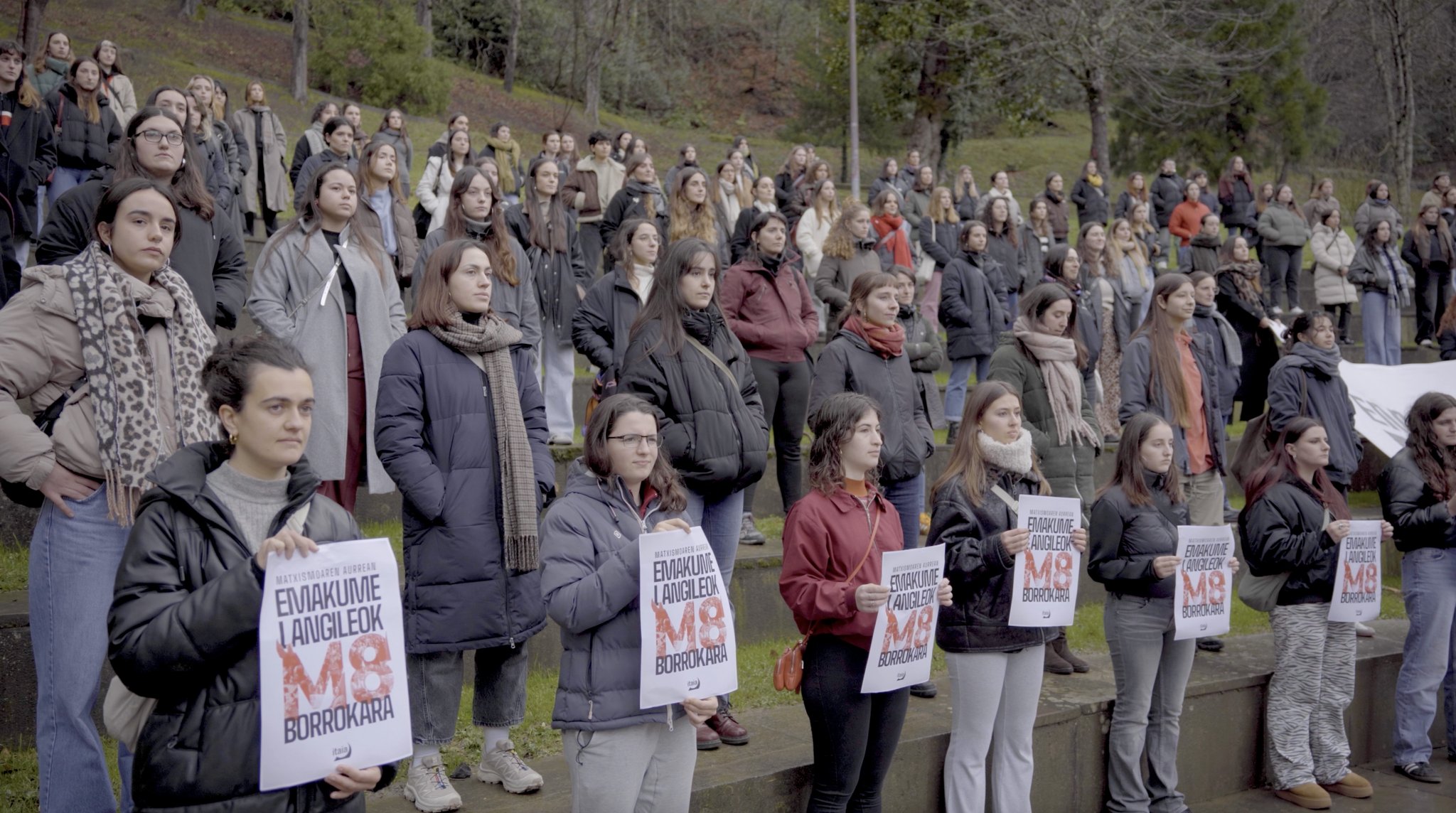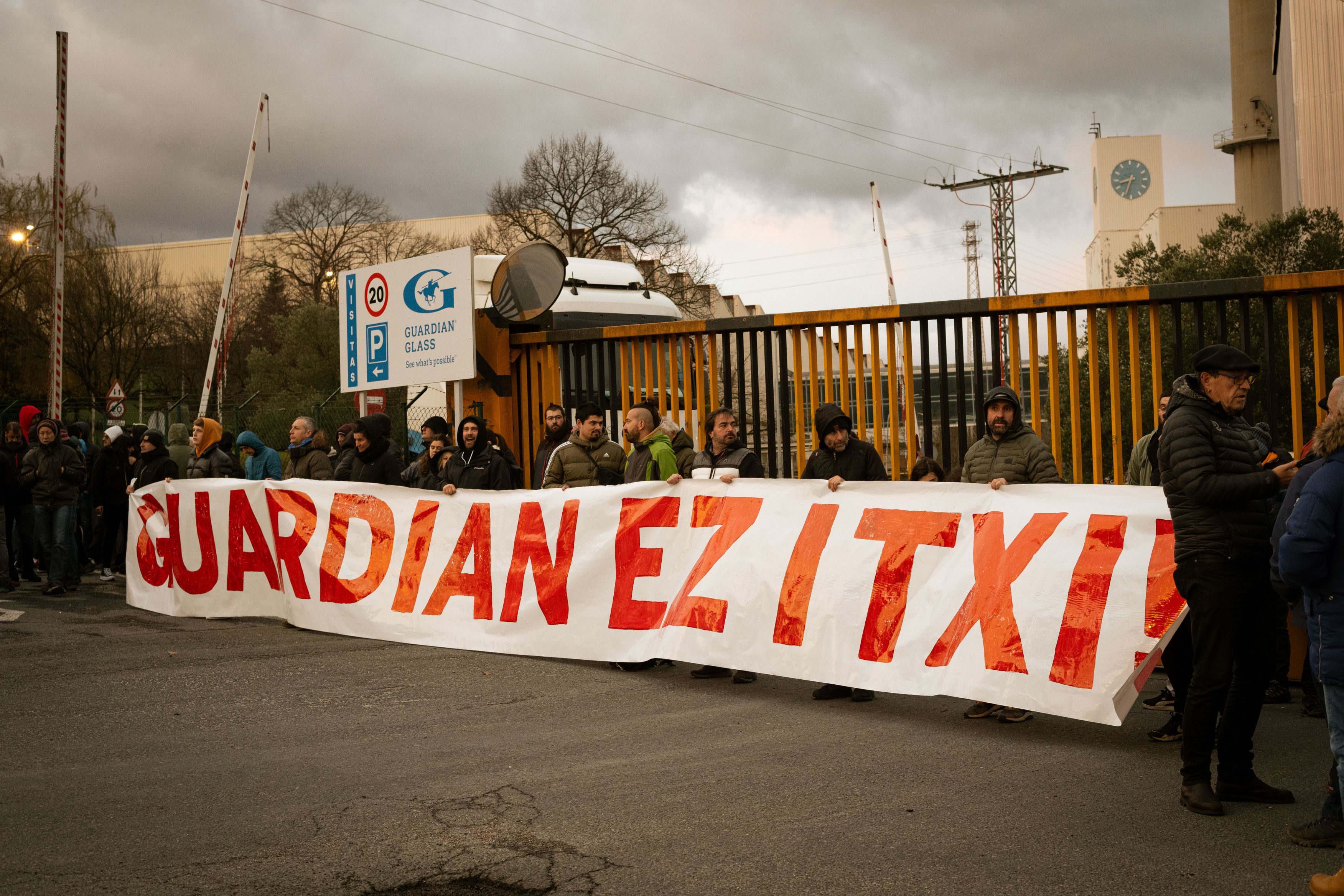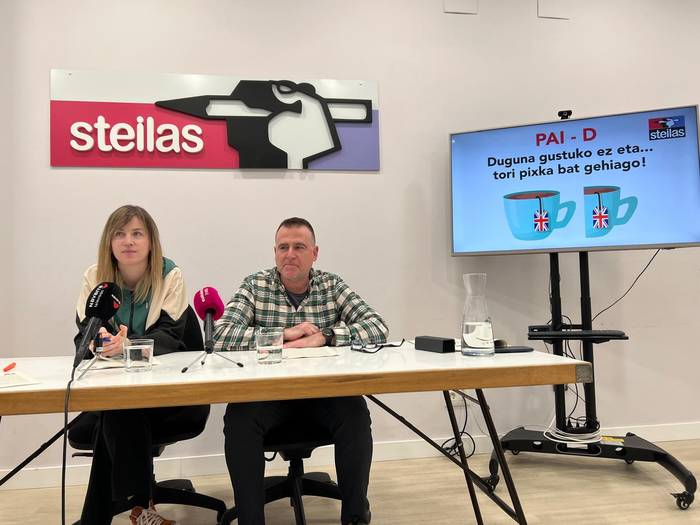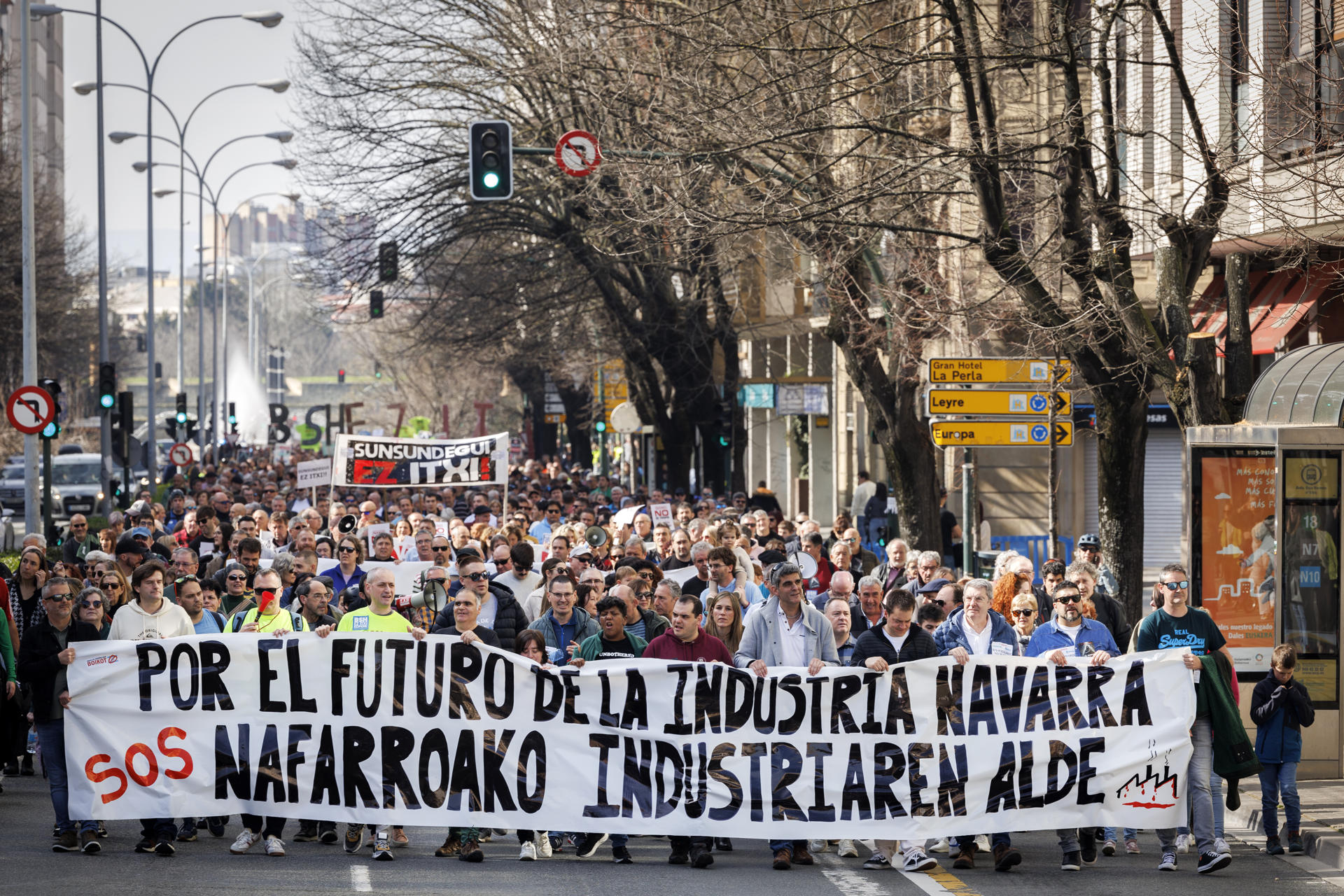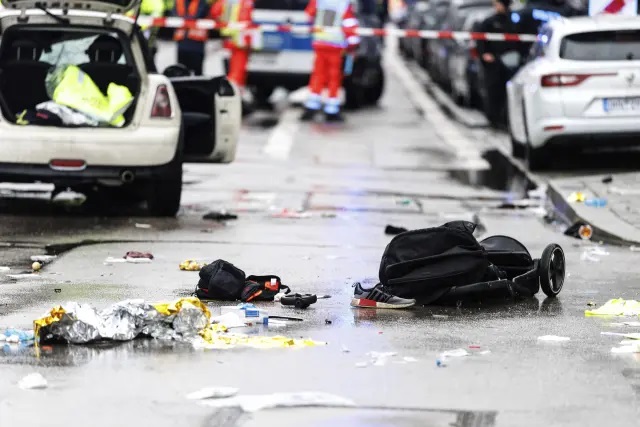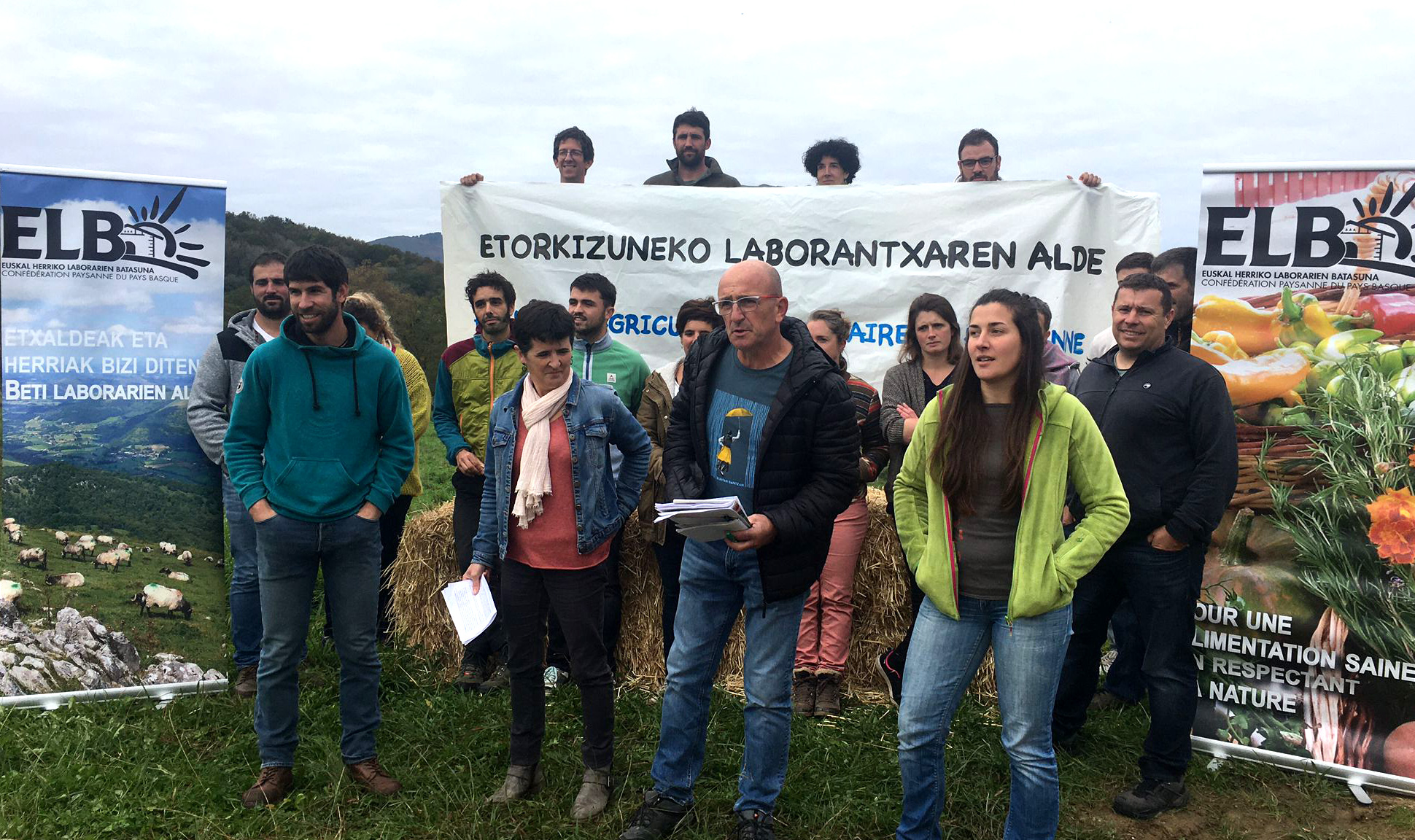"We need the public purchase of the factory"
- The multinational Stellantis has closed the Mecaner plant and left 148 workers on the street in Urduliz (Bizkaia), so different agents have created an eco-social alternative for "Mecaner Herri". Iraide Juaristi of the LAB trade union and Aitor Gallastegi of the Ekoscan Jump have explained what it consists of.

How have you experienced the struggle for the company Mecaner from September 2023 to today?
Iraide Juaristi: From the outset we have made it clear that Mecaner is part of the multinational Stellantis and that the decision to close was yours. Mecaner has been a company that has been making profits in recent years, so the aim of the closure has been to relocate production. Thus, we have been aware that our regulations in the Basque Country allow EREs to be made for no economic reason. As a result, 148 workers have been dismissed from the company. From the outset we have denounced the need to amend this regulation, because such situations will recur in the future. Since a threat of closure, we have wanted to create a future opportunity alongside social and environmental movements.
Aitor Gallastegi: The eco-social proposal seemed to us to be an opportunity to unite the labour struggle and environmentalism, since many times both are represented in contrast. In fact, the ecological transition is underway, and from environmentalism we must also protect workers’ rights, bringing these two struggles together to achieve an eco-social transition. Stellantis, which has received significant support to drive the transition, has decided to renounce the workers’ proposal and close the factory, making clear the importance of transition leadership.
After tabling an eco-social proposal, did you expect this answer at Stellantis?
Juaristi: Stellantis is a multinational not linked to Euskal Herria or Uribe Kosta. It does not matter whether the products are produced here, in China or in Turin. It is true that we expected that there would be another attitude from the institutions. We have had many colleagues and on the part of the institutions it is to be welcomed, for example, the attitude of the City Council of Urduliz and the Commonwealth of Uribe Kosta. But the Basque Parliament and the Basque Government with competence in industry and the economy have not offered us any assistance. We believe that they have turned their back on their political responsibility and have not taken on the role they had.
What is the situation of workers after closure?
Gallastegi: 148 workers have finally been dismissed. Everyone lives their own situation: some have gone to another job and others are unemployed or about to retire.
Juaristi: At the end of the day, these dismissed persons have names and surnames and the situation is very serious. But it is also important for us to put on the table that, in addition to dismissing these people, they have destroyed those jobs. Futures will not have access to them and will have to go to other, more precarious positions. High-quality jobs are being destroyed in Uribe Kosta.
What dynamic have you started now?
Gallastegi: We contacted other associations and started the so-called socio-trade union struggle in the new dynamic for Mecaner Herria. The main objective is to restore production and jobs and that what is to be done is geared towards the eco-social transition. That is, to have a productive, eco-social and fair proposal, linked to the region and to the real needs of the future. In addition, we have three sub-objectives: that the factory be publicly owned, and to do so we need Mecaner Herri to have legitimate partners; to activate society to create a climate of eco-social transition and to open a participatory proposal.
Juaristi: Our claim is that a transition is already taking place from a capitalist logic and led by multinationals like Stellantis. So we want it to be a real transition, a productive fabric that is just and sustainable. It is a transition built from the bottom, with citizen participation. The priority is to recover the factory, because we know that Stellantis will want to liquidate what Mecaner was and sell the same company. In order to prevent Mecaner from becoming a ‘landfill’ or other industrial megaproject, we call for a public purchase.
How many participants are currently in the dynamic?
Juaristi: Some workers, LAB and ESK unions, environmental agents Jauzi and Gune Ecosocial and other actors. From the institutional level there is also the participation of other municipalities of Urduliz and Uribe Kosta.
So which one do you think is your biggest challenge?
Juaristi: As has been said, we need in advance the public ownership of the factory, to stop those plans that Stellantis can have and for the future of Mecaner to be in Urduliz. What we are proposing is to make this decision through a participatory process and the logic of the eco-social transition. Public procurement is therefore our greatest challenge. We are demanding this from the competent institutions, the Council and the Basque Government.
Nahiz eta Nazio Batuen Erakundeak (NBE) 1977an nazioarteko egun bat bezala deklaratu zuen eta haren jatorriaren hipotesi ezberdinak diren, Martxoaren 8aren iturria berez emazte langileen mugimenduari lotua da.
Lan baldintzen "prekarietatea" salatzeko kontzentrazioa egin zuten asteartean egunkariaren egoitzaren aurrean. Abenduaren 2tik sindaura greban daude langileak eta mobizlizazioak "areagotzea" erabaki dute orain.
Langileek salatu dute zuzendaritzak ez diela lan baldintzen gaiari heldu nahi izan eta enpresak nahiago izan duela Gaztea Sariak ekitaldia bertan behera utzi, “horrek sortutako albo-kalte ekonomiko eta sozial guztiekin”, arazoari irtenbidea eman baino.
Mendizale batek asteburuan ikusi du animalia Lapurdiko Azkaine herrian, eta otsoa dela baieztatu du Pirinio Atlantikoetako Prefeturak. ELB lurraldean "harraparien presentziaren kontra" agertu da.
2024ko laneko ezbeharren txostena aurkeztu dute LAB • ESK • STEILAS • EHNE-etxalde eta HIRU sindikatuek aurtengo otsailean. Emaitza larriak bildu dituzte: geroz eta behargin gehiago hiltzen dira haien lanpostuetan.
Jakina da lan ikuskariak falta ditugula geurean. Hala ere, azken egunotan datu argigarriak ematea lortu dute: lan ikuskaritzaren arabera, EAEko enpresen %64ak ez du ordutegien kontrolean legedia betetzen. Era berean, lehendakariordeak gaitzetsi du, absentismoaren eta oinarrizko... [+]
Aiaraldeko hainbat irakaslek mezua igorri diete ikasleen guraso eta familiei, dagoen informazio zurrunbiloan, grebarako arrazoiak modu pertsonalean azaltzeak euren borroka eta lanuztea hobeto ulertzeko balioko dielakoan.
Martxoaren 8a hurbiltzen ari zaigu, eta urtero bezala, instituzioek haien diskurtsoak berdintasun politika eta feminismoz josten dituzte, eta enpresek borroka egun hau “emazteen egunera” murrizten dute, emakumeei bideratutako merkatu estereotipatu oso bati bidea... [+]
Grebaren bezperan Hezkuntza Sailak “edukirik gabeko” mahaia deitu zuela eta sindikatu deitzaileak “errespetatu gabe” akordioa “antzezteko” gutxiengoa duten sindikatuak “erabili” nahi izan zituela salatu ostean, beste bi greba... [+]
Martxoak 8aren izaera iraultzailea berreskuratzeko deia egin du Itaia emakumeen antolakunde sozialistak. Irene Ruiz Itaiako kideak azaldu digunez, “oldarraldi erreakzionarioaren eta matxismoaren aurrean proposamen iraultzailea hauspotu eta kontzientzia sozialista... [+]









